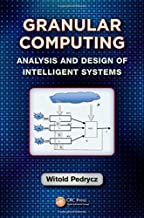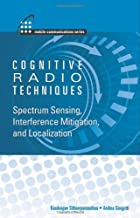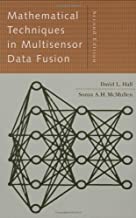Granular Computing : Analysis and Design of Intelligent Systems
Original price was: ₹19,386.00.₹15,508.80Current price is: ₹15,508.80.
ISBN: 9781439886816
Author/Editor: Witold Pedrycz
Publisher: CRC Press
Year: 2013
1 in stock (can be backordered)
Description
This Handbook brings together and integrates comprehensively the core approaches to fear and anxiety. Its four sections: Animal models; neural systems; pharmacology; and clinical approaches, provide a range of perspectives that interact to produce new light on these important and sometimes dysfunctional emotions. Fear and anxiety are analyzed as patterns that have evolved on the basis of their adaptive functioning in response to threat. These patterns are stringently selected, providing a close fit with environmental situations and events; they are highly conservative across mammalian species, producing important similarities, along with some systematic differences, in their human expression in comparison to that of nonhuman mammals. These patterns are described, with attention to both adaptive and maladaptive components, and related to new understanding of neuroanatomic, neurotransmitter, and genetic mechanisms. Although chapters in the volume acknowledge important differences in views of fear and anxiety stemming from animal vs. human research, the emphasis of the volume is on a search for an integrated view that will facilitate the use of animal models of anxiety to predict drug response in people; on new technologies that will enable direct evaluation of biological mechanisms in anxiety disorders; and on strengthening the analysis of anxiety disorders as biological phenomena.
Additional information
| Weight | 0.59 kg |
|---|
Product Properties
| Year of Publication | 2013 |
|---|---|
| Table of Contents | Information Granularity, Information Granules, and Granular Computing Information Granularity and the Discipline of Granular Computing Formal Platforms of Information Granularity Information Granularity and Its Quantification Information Granules and a Principle of the Least Commitment Information Granules of Higher Type and Higher Order Hybrid Models of Information Granules A Design of Information Granules The Granulation-Degranulation Principle Information Granularity in Data Representation and Processing Optimal Allocation of Information Granularity Key Formalisms for Representation of Information Granules and Processing Mechanisms Sets and Interval Analysis Interval Analysis Fuzzy Sets: A Departure from the Principle of Dichotomy Rough Sets Shadowed Sets as a Three-Valued Logic Characterization of Fuzzy Sets Information Granules of Higher Type and Higher Order, and Hybrid Information Granules Fuzzy Sets of Higher Order Rough Fuzzy Sets and Fuzzy Rough Sets Type-2 Fuzzy Sets Interval-Valued Fuzzy Sets Probabilistic Sets Hybrid Models of Information Granules: Probabilistic and Fuzzy Set Information Granules Realization of Fuzzy Models with Information Granules of Higher Type and Higher Order Representation of Information Granules Description of Information Granules by a Certain Vocabulary of Information Granules Information Granulation-Degranulation Mechanism in the Presence of Numeric Data Granulation-Degranulation in the Presence of Triangular Fuzzy Sets The Design of Information Granules The Principle of Justifiable Granularity Construction of Information Granules through Clustering of Numeric Experimental Evidence Knowledge-Based Clustering: Bringing Together Data and Knowledge Refinement of Information Granules through Successive Clustering Collaborative Clustering and Higher-Level Information Granules Optimal Allocation of Information Granularity: Building Granular Mappings From Mappings and Models to Granular Mappings and Granular Models Granular Mappings Protocols of Allocation of Information Granularity Design Criteria Guiding the Realization of the Protocols for Allocation of Information Granularity Granular Neural Networks as Examples of Granular Nonlinear Mappings Further Problems of Optimal Allocation of Information Granularity Granular Description of Data and Pattern Classification Granular Description of Data-A Shadowed Sets Approach Building Granular Representatives of Data A Construction of Granular Prototypes with the Use of the Granulation-Degranulation Mechanism Information Granularity as a Design Asset and Its Optimal Allocation Design Considerations Pattern Classification with Information Granules Granular Classification Schemes Granular Models: Architectures and Development The Mechanisms of Collaboration and Associated Architectures Realization of Granular Models in a Hierarchical Modeling Topology The Detailed Considerations: From Fuzzy Rule-Based Models to Granular Fuzzy Models A Single-Level Knowledge Reconciliation: Mechanisms of Collaboration Collaboration Scheme: Information Granules as Sources of Knowledge and a Development of Information Granules of a Higher Type Structure-Free Granular Models The Essence of Mappings between Input and Output Information Granules and the Underlying Processing The Design of Information Granules in the Output Space and the Realization of the Aggregation Process The Development of the Output Information Granules with the Use of the Principle of Justifiable Granularity Interpretation of Granular Mappings Illustrative Examples Granular Time Series Introductory Notes Information Granules and Time Series A Granular Framework of Interpretation of Time Series: A Layered Approach to the Interpretation of Time Series A Classification Framework of Granular Time Series Granular Classifiers From Models to Granular Models Knowledge Transfer in System Modeling Fuzzy Logic Networks-Architectural Considerations Granular Logic Descriptors Granular Neural Networks The Design of Granular Fuzzy Takagi-Sugeno Rule-Based Models: An Optimal Allocation of Information Granularity Collaborative and Linguistic Models of Decision Making Analytic Hierarchy Process (AHP) Method and Its Granular Generalization Analytic Hierarchy Process Model-The Concept Granular Reciprocal Matrices A Quantification (Granulation) of Linguistic Terms as Their Operational Realization Granular Logic Operators Modes of Processing with Granular Characterization of Fuzzy Sets Index Chapters include Conclusions and References. |
| Author | Witold Pedrycz |
| ISBN/ISSN | 9781439886816 |
| Binding | Hardback |
| Edition | 1 |
| Publisher | CRC Press |
You must be logged in to post a review.






Reviews
There are no reviews yet.